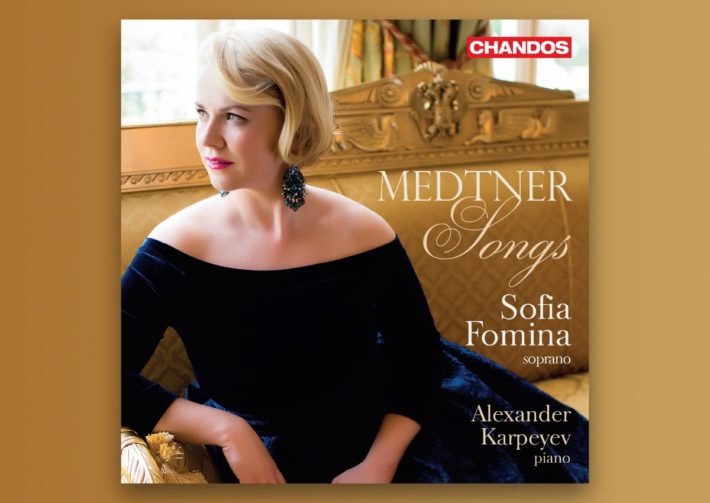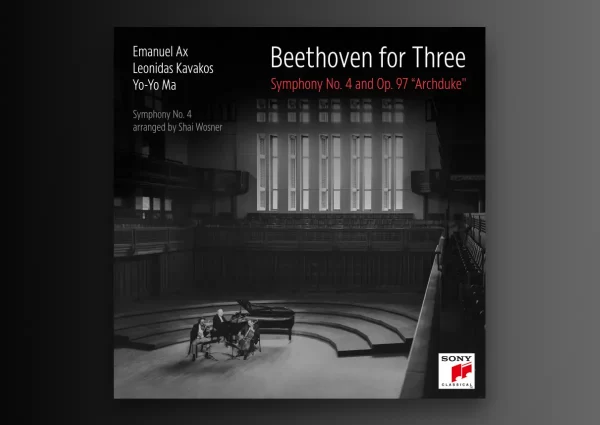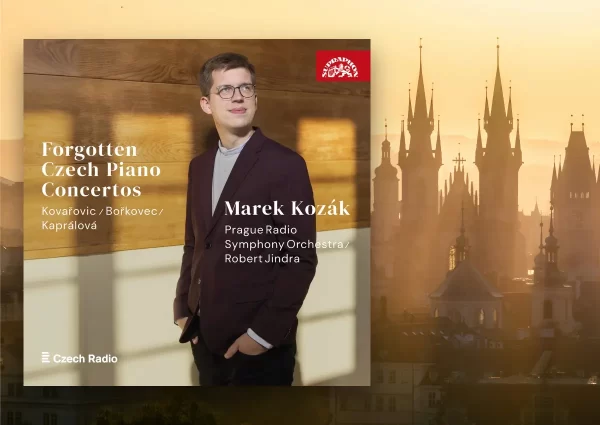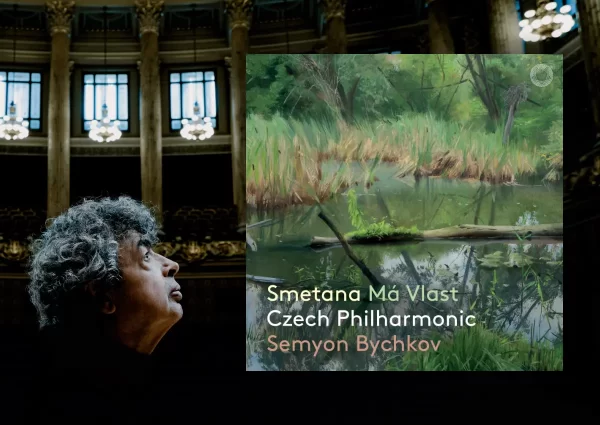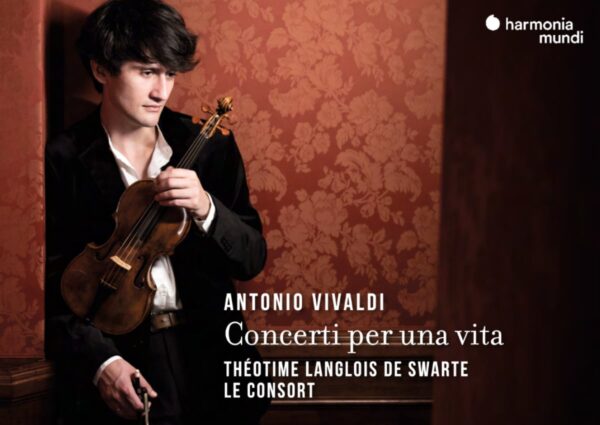In many respects, Nikolai Medtner’s songs are a reflection of his heritage and upbringing which were at a crossroads of Eastern and Western European influences. Soprano Sofia Fomina and pianist Alexander Karpeyev present a selection of these works based on the texts of famous literary figures from Russia (Pushkin, Tyutchev, and Fet) and Germany (Goethe, Eichendorff, and Chamisso).
There is debate among vocalists and pianists as to where Medtner’s finest writing lies, but if the Op. 36 set of Six Poems by A. Pushkin is any indicator, his approach to both instruments is equally refined and creative. The rippling piano accompaniment of The Angel (track 1) is reminiscent of Rachmaninoff’s Moment Musicaux No. 6. We are led through a wondrous harmonic journey in which the vocal line follows the piano’s lead to some extent but also has its own distinct presence, perhaps symbolic of the poem’s central dichotomy.
The Flower (track 2) sees the soprano treat the inquisitive text with an element of spontaneity, as though she is thinking out loud. Karpeyev also brings out the climactic, rhapsodic middle section effectively. His solo at 1:28-1:45 is quite nice, adding a brief yet intriguing sense of mysticism shortly before the final stanza.
The writings upon which Spanish Romance (track 4) is based are one of Pushkin’s more terse. However, Medtner fills in the gaps musically by using textures to evoke both gaiety and dreaminess (and even to mimic a guitar that appears in the poem). The performers convey these qualities, which alternate through the song, in realistic fashion; we can easily imagine a warm summer night in Spain. Fomina has a nice variety in her interpretation, sounding soothing and inviting one moment but tempestuous the next. The pianist’s take, too, is imaginative and especially good in the rhythmic sections – the opening inches forward playfully at times but also sets the song’s firm pace.
Related Classical Music Reviews
- Review: “Paradise Lost” – Anna Prohaska, Julius Drake
- Review: “The Divine Muse” – Mary Bevan – Soprano, Joseph Middleton – Piano
- Review: “Anima Rara” – Ermonela Jaho, Soprano
In the programmatic Arion (track 6), Medtner introduces a piano part significant enough that it could tell the poem’s story on its own. Karpeyev lets us hear the different figures that represent the ocean: a peaceful presence that abruptly turns frightening and destructive. Fomina, too, sings with conviction, though I did feel that she could use more color within the dramatic sections. This aside, the performance is still a strong conclusion to the set.
The Op. 46 Seven Lieder takes inspiration from Medtner’s German roots. Where the previous set was more extroverted, even effusive at times, this series brings out the duo’s subtlety. Hallowed Place (track 17) is a lovely contrast from some of the more heavily-textured works in the Pushkin. The singer’s tone possesses resonance but upholds a graceful character throughout. Meanwhile, the pianist’s clarity gives the song its translucence and whimsy.
The much darker Winter Night (track 20) is jarring but one of the most profound performances on the album. Here, the piano represents an unforgiving winter landscape, with crystalline and menacing dissonances that erupt in fury at the end. Fomina skillfully brings a range of sentiments from hopeful comfort to a nearly cataclysmic reach for what the poem describes as the future. The cathartic follow-up, Spring (track 21), is set to happier words. The duo captures the lighthearted swing but not without a perpetual note of sadness. Karpeyev in particular adeptly grasps Medtner’s irony in the final notes of the piano.
Amongst the other two sets featured on the album, Sleeplessness (track 7) from Op. 37 stands out. The soprano’s husky deeper register that fits perfectly into the lament, with the pianist creating the broodiness behind Medtner’s listless harmonies.
Recorded at Wyastone Concert Hall in the UK, the album has a sound engineering which gives the performance a live feel but that could use a better calibration of balance. With the intricacy of Medtner’s writing in the piano part and the melodic variety of the vocal line, it seems at times that both forces are in competition to be heard. As for the liner notes, they are a welcome addition, providing a description of Medtner’s background that reveals his compositional style and influences.
If we look past the small missteps, this release is indeed a solid effort and one worth adding to any song enthusiast’s collection.

Medtner – Songs Op. 36, 37, 45, 46
Sofia Fomina – Soprano
Alexander Karpeyev – Piano
Chandos Records, CD CHAN 20171
Medtner Songs – Recommended Comparisons
Read more classical music reviews or visit The Classic Review Amazon store
Follow Us and Comment:
Get our periodic classical music newsletter with our recent reviews, news and beginners guides.
We respect your privacy.

